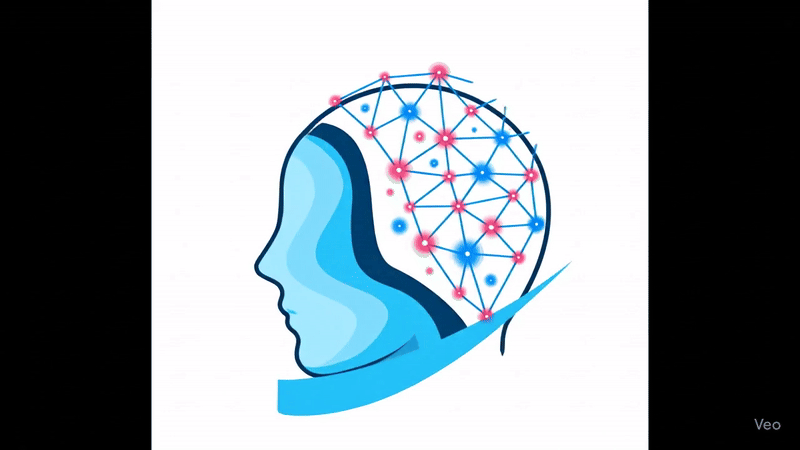Publications
Explore our latest analysis and perspectives on the intersection of Generative AI and Scientific Research. This collection of white papers, expert briefs, and conference presentations delves into the challenges, strategies, and transformative potential of leveraging AI to enhance the quality and efficiency of evidence generation.
From Task Replacement to Workflow Revolution
This paper explores the hidden crisis of "digital graveyards" where valuable research insights are lost. It argues that the true power of GenAI lies not just in automating tasks, but in revolutionizing how institutional knowledge is accessed and utilized by everyone.
Transforming LLMs into Reliable HEOR Research Tools
Foundation LLMs present significant challenges for scientific research, from hallucinations to a lack of reproducibility. This presentation outlines a methodical framework for transforming general-purpose LLMs into reliable, high-quality research tools built for the scientific rigor of HEOR.
Decoding LLM Hallucinations: Beyond Just "Lack of Context"
LLM hallucinations are a multifaceted challenge, not a single problem. This brief decodes the primary causes of AI-generated misinformation—from imperfections in training data to suboptimal context management—and outlines targeted, practical solutions for building more reliable applications.
The AI debate in research is missing the point.
The AI debate in research focuses too much on benchmarking single LLMs. Using a groundbreaking case study on systematic reviews, it demonstrates that the future of reliable AI lies in intelligently designed, multi-agent systems, shifting the critical question from "Can AI do the job?" to "How do we build the right system for the job?"
AI Agents in Health Research: What Does “Agent” Actually Mean?
The term "AI agent" is often misused, leading to confusion and poor tool selection. This guide clarifies the difference between structured AI workflows (like a systematic review) and adaptive AI agents (like qualitative research), providing a practical framework for health researchers to choose the right tool for their specific task.
Upskilling for GenAI: A New Era in Research
GenAI is more than just a tool; it requires a new set of skills for researchers. This presentation outlines a practical upskilling journey, covering foundational principles, the balance between prompting and coding, and the importance of hands-on experimentation to truly harness the power of AI in a scientific context.
Augmenting Health Economic Model Report Creation with LLMs
This practical presentation demonstrates a specific use case for augmenting the creation of health economic model reports. It showcases a concrete workflow where LLMs assist in drafting and reviewing report sections, integrating directly with existing processes to improve efficiency while maintaining essential human oversight.
The choice between off-the-shelf AI and a custom solution is not just a technical preference; it's a strategic decision between a consumer-grade product and an enterprise-grade system. This white paper decodes the critical risks of generalist tools—from their "black box" logic to data integrity gaps —and outlines a framework for building purpose-built AI that delivers true control, integration, and auditability for specialized, high-stakes work
Why Enterprise-Grade AI Requires a Purpose-Built Strategy
Retrieval-Augmented Generation (RAG) is more than a simple pipeline; it's a sophisticated workflow that requires a deliberate architectural approach to succeed at scale. This white paper provides a blueprint for moving beyond naive prototypes to build advanced, enterprise-grade RAG systems. The goal is to provide a practical guide for building AI that is accurate, efficient, and truly reliable.
A Deep Dive into Advanced Retrieval-Augmented Generation (RAG)
The debate over Large Language Models isn't about hype versus fear; it's about a fundamental misunderstanding that leads organizations to treat them as standalone "magic boxes," resulting in staggering project failure rates. Using a powerful Formula 1 analogy, this white paper reframes the LLM as a high-performance engine and provides the systems-based framework for building the complete race car—one that delivers reliable workflow enhancement, strategic agility, and a durable competitive advantage.
Beyond Hype and Fear
Many organizations face what I call the "AI Trust Paradox"—the potential efficiency of AI is often lost to the time-consuming manual verification needed to meet scientific standards. This whitepaper explore a framework called the "LLM-as-a-Judge" model as oneof the ways to address this challenge
LLM-as-a-Judge
Context Engineering: Why GenAI projects fail (or work)?
This whitepaper argues that the 95% failure rate of enterprise GenAI projects is not due to model limitations, but rather a lack of "Context Engineering", a systematic architectural approach that prioritizes data governance, reliable retrieval, and structured memory over simple prompt crafting.
Ready to Transform Your Work?
Let's discuss how Aide Solutions can enhance your research strategy and accelerate your timelines. Reach out for a complimentary, no-obligation consultation.
Contact
Connect
support@aidesolutions.net
(+1)617-470-7928
© 2025 Aide Solutions LLC. All Rights Reserved.
